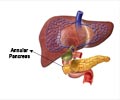Helicobacter pylori, nonsteroidal anti-inflammatory drug use and smoking are the most important risk factors for peptic ulcer.
It has been known that - Helicobacter pylori, nonsteroidal anti-inflammatory drug use and smoking are the most important risk factors for peptic ulcer; alcohol intake may be held responsible in the development of gastric ulcers; and even psychological stress doesn't spare us ulcer distress. But childhood adversities? Can difficult childhoods, which include financial problems, conflicts in the family, problems with alcohol, and matters of personal security, be associated with peptic ulcer?
A research article to be published on July 21,2009 in the World Journal of Gastroenterology addresses this question. Dr. Markku Sumanen and his colleagues of the Health and Social Support Study (HeSSup) investigated this subject in a nationwide sample of working-aged people in Finland. The participants were asked whether or not a doctor had told them that they have or have had a peptic ulcer. They were also asked to think about their childhood adversities in terms of the following questions: 1) "Did your parents divorce?" 2) "Did your family have long-lasting financial difficulties?" 3) "Did serious conflicts arise in your family?" 4) "Were you often afraid of some member of your family?" 5) "Was someone in the family seriously or chronically ill?" 6) "Did someone in the family have problems with alcohol?"The most common childhood adversities to emerge were long-lasting financial difficulties in the family, serious conflicts in the family and someone in the family having been seriously or chronically ill. All adversities reported were more common among peptic ulcer patients than among other respondents. Alcohol problems in the family and fear of some member of the family were also more common among peptic ulcer patients than among other respondents. With regard to parental divorce there was no statistically significant difference between the two groups. Age- and sex-adjusted odds ratios (ORs) of childhood adversities for peptic ulcer were statistically significant, indicating that participants with childhood adversities had a higher proportional risk of developing peptic ulcer. Adjusting also for smoking, heavy drinking, stress and current NSAID use had no further influence. Long-lasting financial difficulties in the family had the greatest influence.
According to the findings there is reason to believe that stress factors during childhood maintain a connection with the development of peptic ulcers. Childhood adversities are not necessarily true risk factors for peptic ulcer, but may play a predictive role in the development of the disease. A more comprehensive understanding of peptic ulcer patients is worth aspiring to.
Source-Eurekalert
TAN















